Содержание
- 2. What is a Noun? noun (noun): a word (except a pronoun) that identifies a person, place
- 3. Another (more complicated) way of recognizing a noun is by its: ending position function
- 4. Noun ending There are certain word endings that show that a word is a noun, for
- 5. But this is not true for the word endings of all nouns. For example, the noun
- 6. Position in sentence We can often recognise a noun by its position in the sentence. Nouns
- 7. Nouns often come after one or more adjectives: a great relief a peaceful afternoon the tall,
- 8. Gender-specific Noun A gender-specific noun is a noun that refers specifically to someone or something male
- 9. Genders of Noun Masculine Gender Feminine Gender Neuter Gender Common Gender
- 11. MASCULINE GENDER Masculine Gender is a name that denotes a male person or animal. Example: grandfather,
- 12. Nouns referring to males: king, uncle, drake (male duck), wether (a castrated male sheep or goat)
- 13. FEMININE GENDER Feminine Gender is a name that expresses a female person or animal. Example: grandmother,
- 14. Nouns referring to females: queen, vixen (female fox), bitch (female dog), sow (female pig) The grammatical
- 15. NEUTER GENDER Neuter Gender is a name that shows a thing which is neither male nor
- 16. COMMON GENDER Common Gender is used to stand in stead of male or female nouns. Example:
- 17. The following are not gender-specific nouns: soldier, shark, lawyer, person Without further context, these are gender-neutral
- 18. Here are Two Gender-specific Nouns. Can you find them? mob headmistress congregation army hive bunch range
- 19. Real-Life Examples of Gender-specific Nouns In English, the gender of a noun determines the pronouns we
- 20. Why Should I Care about Gender-specific Nouns?
- 21. Using the word "actress" Using the gender-specific noun "actress" is a considered sexist by some, most
- 22. Using the word "chairman" Not everyone treats the noun "chairman" as a gender-specific noun, and it
- 23. Using the word "chairman" Don't call me "chairman" because I'm a woman. Don't call me "chairwoman"
- 24. Choosing the right version of blonde/blond.
- 25. The word blond/blonde changes depending on its gender. Blond is a noun meaning a fair-haired male.
- 26. Finding an alternative to his/her. Look at these sentences: Each person must understand where he fits
- 27. NB: "Singular they" was nominated as the American Dialect Society's word of the year in 2015
- 28. Using gender-neutral pronouns for people who do not identify themselves as either male or female.
- 29. Be aware that some people identify themselves as both male and female while others as neither
- 30. "They" is plural, but the person's name isn't.
- 31. Use "themself" instead of "themselves."
- 32. Person of Nouns Person is that property of a noun or a pronoun which distinguishes the
- 34. Function in a sentence Nouns have certain functions (jobs) in a sentence, for example: Subject: The
- 35. What is a Noun? Quiz
- 36. 1. The simple definition of a noun is: a person, place or … a) pronoun b)
- 37. 2. To decide if a word's a noun, look at its ending, position and … a)
- 38. 3. A word is almost certainly a noun if it ends with … a) -ness b)
- 39. 4. Which is a noun? a) govern b) government
- 40. 5. In which sentence does a noun follow a determiner? a) The food's delicious. b) It's
- 41. 6. In which sentence does a noun follow an adjective? a) Their team played well. b)
- 42. 7. Nouns often come after one or more … a) adjectives b) adverbs
- 43. 8. Nouns often function as the subject and/or object of … a) an adjective b) a
- 44. 9. "She plays the guitar." The noun "guitar" is the a) subject of the verb b)
- 45. 10. In which sentence is the subject a pronoun? a) England is cold now. b) You'll
- 46. Plural Noun Rules There are many plural noun rules, and because we use nouns so frequently
- 47. 1. To make regular nouns plural, add ‑s to the end. cat – cats house –
- 48. 2. If the singular noun ends in ‑s, -ss, -sh, -ch, -x, or -z, add ‑es
- 49. 3. In some cases, singular nouns ending in -s or -z, require that you double the
- 50. If the noun ends with ‑f or ‑fe, the f is often changed to ‑ve before
- 51. 5. If a singular noun ends in ‑y and the letter before the -y is a
- 52. 6. If the singular noun ends in -y and the letter before the -y is a
- 53. 7. If the singular noun ends in ‑o, add ‑es to make it plural. potato –
- 54. 8. If the singular noun ends in ‑us, the plural ending is frequently ‑i. cactus –
- 55. 9. If the singular noun ends in ‑is, the plural ending is ‑es. analysis – analyses
- 56. 10. If the singular noun ends in ‑on, the plural ending is ‑a. phenomenon – phenomena
- 57. 11. Some nouns don’t change at all when they’re pluralized. sheep – sheep series – series
- 58. Irregular Nouns child – children goose – geese man – men woman – women tooth –
- 59. Types of Nouns Common Nouns and Proper Nouns Concrete Nouns and Abstract Nouns Countable Nouns and
- 60. Common Nouns Most nouns are common nouns. Common nouns refer to people, places and things in
- 61. Proper Nouns Names of people, places or organizations are proper nouns. Your name is a proper
- 62. Capital Letters with Proper Nouns RULE: We always use a Capital Letter for the first letter
- 63. Proper Nouns without THE with names of people; names of companies; for shops, banks, hotels etc
- 64. Proper Nouns without THE We do not normally use "the" with names of companies. For example:
- 66. Exception! If a country name includes "States","Kingdom", "Republic" etc, we use "the":
- 67. Look at these example sentences: I wanted to speak to the doctor. I wanted to speak
- 70. Proper Nouns with THE for country names that include "States","Kingdom", "Republic" etc (the United States of
- 72. Concrete Nouns Concrete nouns are physical things that you can touch. Examples: man, rice, head, car,
- 73. Abstract Nouns Abstract nouns are the opposite of concrete nouns. They are things that you cannot
- 75. Countable Nouns (also called count nouns) You can count countable nouns. Countable nouns have singular and
- 76. When a countable noun is singular, we must use a word like a/the/my/this with it: I
- 77. Uncountable Nouns (also called mass nouns) You cannot count uncountable nouns. You need to use "measure
- 78. Collective Nouns A collective noun denotes a group of individuals. Examples: class (group of students), pride
- 79. Compound Nouns A compound noun is a noun that is made with two or more words.
- 80. Compound Nouns Examples: cat food, blackboard, breakfast, full moon, washing machine Can we use the swimming
- 81. Gerund A gerund is a noun formed from a verb. All gerunds end -ing. For example:
- 84. Types of nouns Quiz
- 85. There are many different types of nouns: proper, common, concrete, abstract, countable, non-countable, collective, verbal and
- 86. 1. The [Rideau Canal] is a UNESCO World Heritage Site. common noun proper noun abstract noun
- 87. 2. The Canal connects two [cities]: Ottawa and Kingston. common noun non-countable noun compound noun
- 88. 3. The Rideau Canal was built for military and commercial [purposes]. concrete noun non-countable noun abstract
- 89. 4. To commemorate the workers who died during the [building] of the Canal, the Rideau Canal
- 90. 5. The monument is also dedicated to the [families] of the workers. collective noun non-countable noun
- 91. 6. During winter, approximately eight kilometres of the Canal becomes a [skateway]. proper noun abstract noun
- 92. 7. [Malaria] was endemic in Ontario during the construction of the canal. non-countable noun countable noun
- 93. 8. The Rideau Waterway was designated a Canadian Heritage River in the [year] 2000. countable noun
- 94. 9. The [locks] of the Rideau Canal are still operated the way they were in 1832,
- 95. Possessive When we want to show that something belongs to somebody or something, we usually add
- 96. Notice that the number of balls does not matter. The structure is influenced by the possessor
- 97. The structure can be used for a whole phrase: the man next door's mother (the mother
- 98. Although we can use of to show possession, it is more usual to use possessive 's.
- 99. We very often use possessive 's with names: This is Mary's car. Where is Ram's telephone?
- 100. Irregular Plurals Some nouns have irregular plural forms without s (man → men). To show possession,
- 101. Mini Quiz
- 102. 1. Which is correct? "Are you going to _______ birthday party?" a) Harry's b) Harrys' c)
- 103. 2. "To prevent cheating in exams, all the _______ phones are collected beforehand." a) student's b)
- 104. 3. "My father's living in an _______ home." a) old peoples' b) old people's c) old
- 105. 4. "Whose cat is this? Is it your _______ ?" a) next door neighbours b) next
- 107. Скачать презентацию



















































































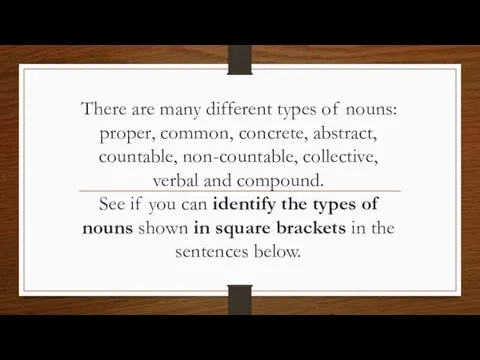
![1. The [Rideau Canal] is a UNESCO World Heritage Site. common noun proper noun abstract noun](/_ipx/f_webp&q_80&fit_contain&s_1440x1080/imagesDir/jpg/891088/slide-85.jpg)
![2. The Canal connects two [cities]: Ottawa and Kingston. common noun non-countable noun compound noun](/_ipx/f_webp&q_80&fit_contain&s_1440x1080/imagesDir/jpg/891088/slide-86.jpg)
![3. The Rideau Canal was built for military and commercial [purposes]. concrete](/_ipx/f_webp&q_80&fit_contain&s_1440x1080/imagesDir/jpg/891088/slide-87.jpg)
![4. To commemorate the workers who died during the [building] of the](/_ipx/f_webp&q_80&fit_contain&s_1440x1080/imagesDir/jpg/891088/slide-88.jpg)
![5. The monument is also dedicated to the [families] of the workers.](/_ipx/f_webp&q_80&fit_contain&s_1440x1080/imagesDir/jpg/891088/slide-89.jpg)
![6. During winter, approximately eight kilometres of the Canal becomes a [skateway].](/_ipx/f_webp&q_80&fit_contain&s_1440x1080/imagesDir/jpg/891088/slide-90.jpg)
![7. [Malaria] was endemic in Ontario during the construction of the canal. non-countable noun countable noun](/_ipx/f_webp&q_80&fit_contain&s_1440x1080/imagesDir/jpg/891088/slide-91.jpg)
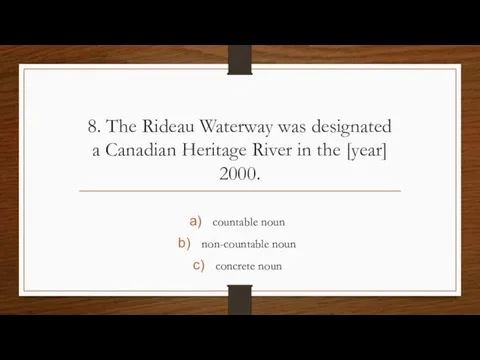
![9. The [locks] of the Rideau Canal are still operated the way](/_ipx/f_webp&q_80&fit_contain&s_1440x1080/imagesDir/jpg/891088/slide-93.jpg)
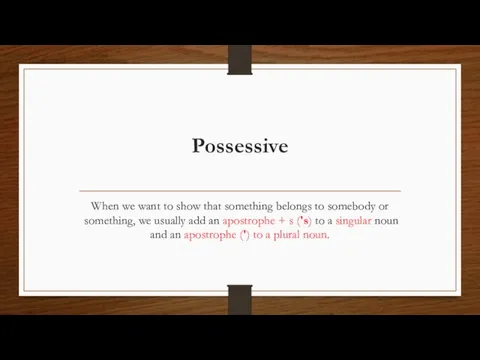
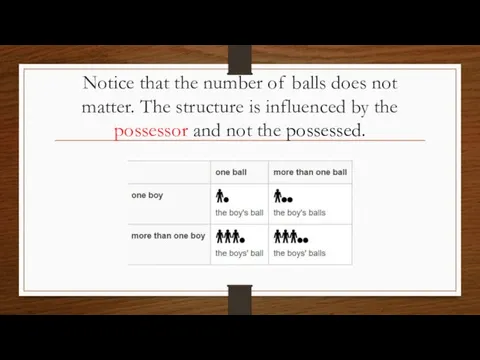
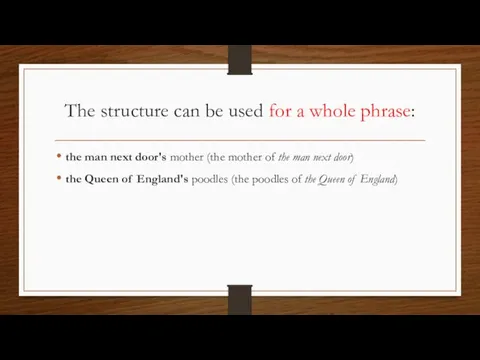
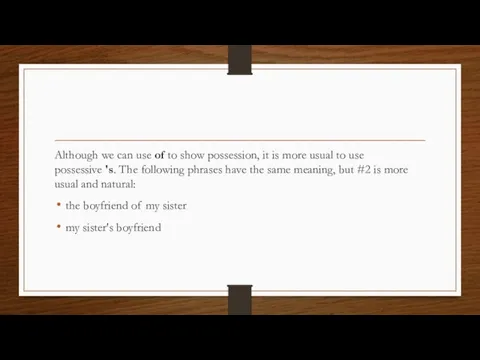
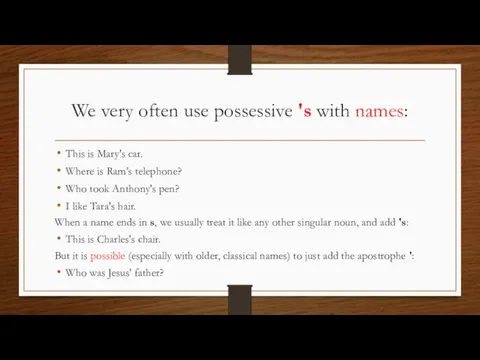
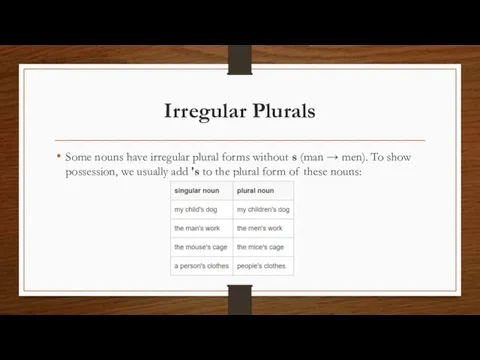
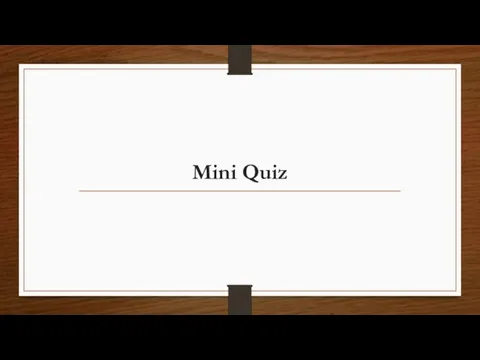
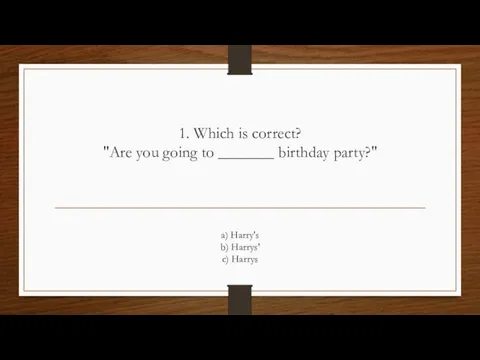
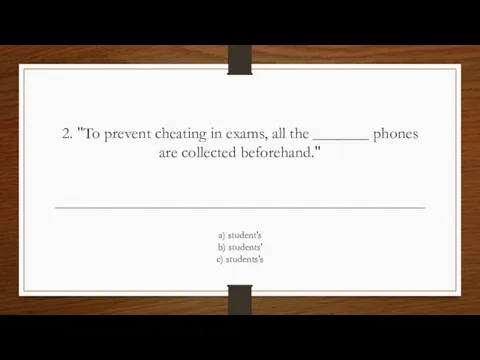
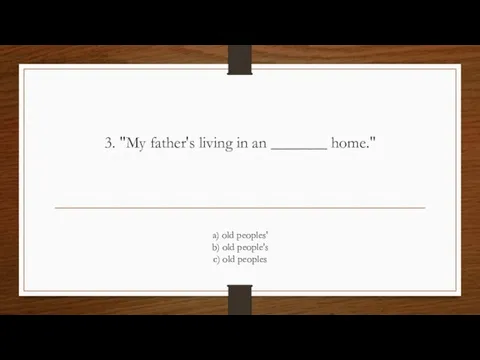
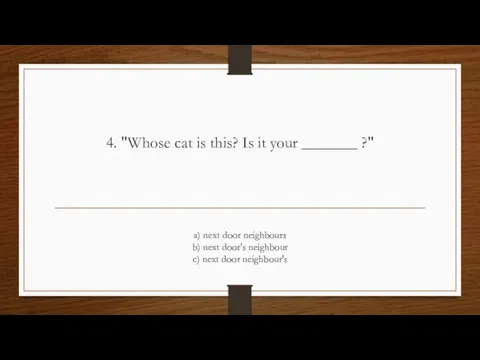
 English phrase book
English phrase book At the swimming pool
At the swimming pool Practical english. Series battle
Practical english. Series battle People Experience Management
People Experience Management Dreams
Dreams Организация работы учителей иностранного языка по подготовке школьников 9-11(12) классов к ГИА
Организация работы учителей иностранного языка по подготовке школьников 9-11(12) классов к ГИА Measurement mass
Measurement mass Test assignments
Test assignments Соответствие классам школы
Соответствие классам школы Let’s travel to Australia!
Let’s travel to Australia! Raccoon lesson 7, kidsb3+Questions
Raccoon lesson 7, kidsb3+Questions Прилагательные (The Adjectives). Степени сравнения. Порядок прилагательных. Отрицательные префиксы. lesson 5
Прилагательные (The Adjectives). Степени сравнения. Порядок прилагательных. Отрицательные префиксы. lesson 5 Модальные глаголы
Модальные глаголы Unit 3 revise
Unit 3 revise La mia giornata
La mia giornata Farm animals 4 teacher switcher
Farm animals 4 teacher switcher Passive voice
Passive voice Презентация на тему Личные местоимения Personal pronouns
Презентация на тему Личные местоимения Personal pronouns  Относительные местоимения и наречия
Относительные местоимения и наречия Halloween game
Halloween game Truth or dare
Truth or dare Possessive pronouns
Possessive pronouns Презентация на тему The Thames
Презентация на тему The Thames  Flowers. РОЗА
Flowers. РОЗА Elmer and herd of elephants
Elmer and herd of elephants Modal verbs
Modal verbs Модуль 5.1 Интеграционные процессы в мировой экономике Международная экономическая интеграция – это объективный, осознанный и на
Модуль 5.1 Интеграционные процессы в мировой экономике Международная экономическая интеграция – это объективный, осознанный и на Warm up
Warm up